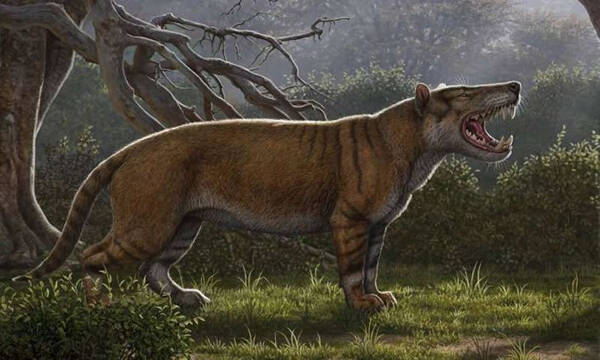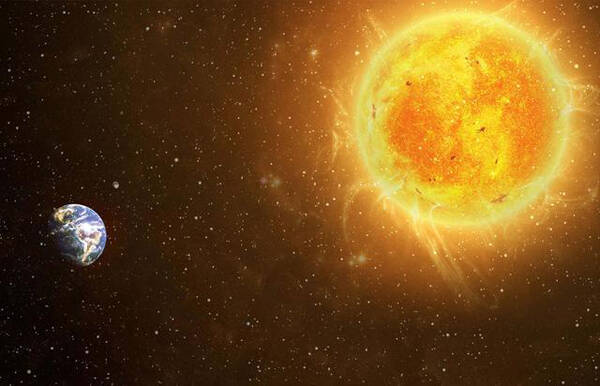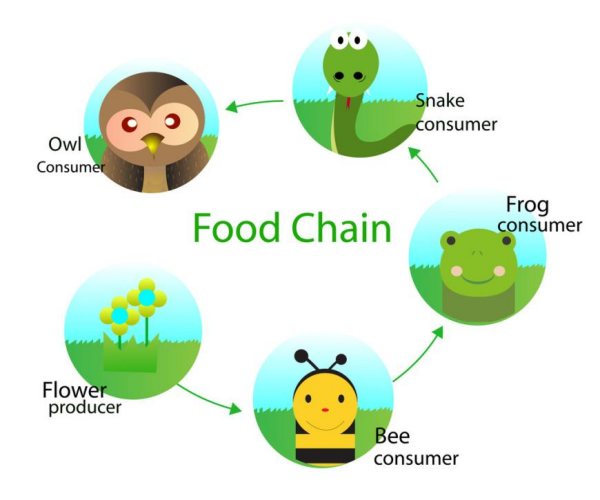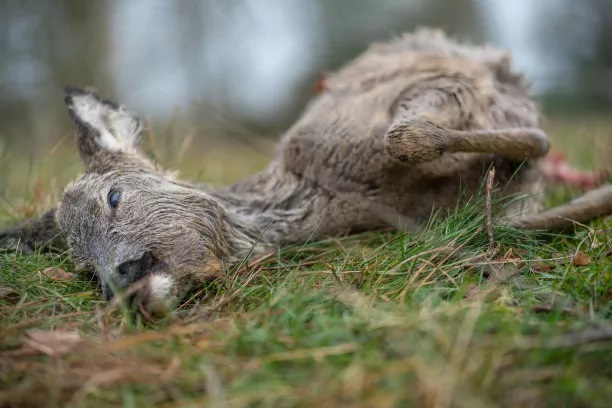
Can be substituted between species at the same trophic level
There is a dynamic balance between organisms in the ecosystem and between organisms and the inorganic environment through energy flow, material circulation and information transmission. At the same time, the ecosystem has the ability to maintain its own stability. It is generally believed that the more complex its food web is, the stronger its ability to self-recover.
In a more stable ecosystem, the extinction of a certain species can be replaced by other similar species. For example, in a grassland ecosystem, when the large carnivore cheetah becomes extinct, the number of herbivorous gazelles will increase sharply in a short period of time. The amount of grass will also decrease sharply; if there is another carnivore besides cheetahs (such as wolves), once the cheetahs become extinct, the wolves will increase the predation pressure on the deer without causing the deer herd to develop too much. large, thereby making it possible to prevent ecosystem collapse.
 Wolves and cheetahs are hunting (Picture source: veer gallery)
Wolves and cheetahs are hunting (Picture source: veer gallery)
In fact, wolves and cheetahs can be at the same trophic level in the food web, and different species at the same trophic level have the same "role". Therefore, if the cheetah becomes extinct, it can be "replaced" by wolves. In detail, different species at the same trophic level can complete the material cycle, energy flow and information transmission functions in the ecosystem to the same extent.
Returning to the original hypothesis, if we can find other things that can replace large carnivores to complete the same degree of material recycling, energy flow and information transmission functions in the ecosystem, or the extinction of large carnivores will not affect these three major functions To destroy the ecological balance, then we think that the ecosystem will not collapse due to the extinction of large carnivores.
Can be replaced during energy flow
Therefore, as far as energy flow is concerned, energy flow is one-way. It can only flow from the first trophic level to the second trophic level, and then to the subsequent trophic levels in turn. It is irreversible and cannot circulate; energy flows during the flow process. Decreasing step by step, the transfer efficiency between two adjacent trophic levels is about 10% to 20%.
Therefore, very little energy is actually obtained by large carnivores, and most of the energy is concentrated at the bottom of the species, that is, between green plants and herbivores. In other words, even if large carnivores become extinct one after another, the process of energy flow will be almost unaffected. Large carnivores can be replaced during energy flow.

Almost all the energy on earth comes from the sun
At the same time, the material cycle of the ecosystem refers to the C, H, O, N, P and other elements that make up living organisms, which are constantly cycling from the inorganic environment to the biological community, and then to the inorganic environment. For example, carbon is mainly in the form of carbon dioxide and enters the biological community from the inorganic environment through the photosynthesis of green plants. It is then transferred between organisms through food chains and food webs. Finally, it is released from the biological community through the respiration of organisms or the decomposition of decomposers. Enter the atmosphere.
If large carnivores become extinct one after another, only the respiration of organisms will be affected to a certain extent (for example, the cheetahs in the grassland ecosystem will become extinct, and the increase in the number of gazelles will lead to a corresponding increase in respiration), but will have little impact on the decomposition of decomposers, so There is basically no impact on the material cycle of the ecosystem, and large carnivores can be replaced in the material cycle.

Material cycle (picture source: Panorama Network)
Little impact on ecosystem information transmission
Finally, in terms of information transmission, after the extinction of large carnivores, the information transmission pattern of the ecosystem will change, but it will not be greatly affected overall, because there are no predators, and there is no way to pass it on to herbivores and their predators. physical information and behavioral information, the alertness of herbivores will decrease, but the decrease in alertness will not threaten their own survival. Therefore, even if the extinction of large carnivores affects the transmission of information between organisms, it will not affect the ecological environment. system breakdown.
For other animals that may be concerned about overpopulation, such as herbivores, predation is only one factor limiting their numbers. Limitations on the growth of animal populations include endogenous and exogenous factors. Predation is only one of the exogenous factors. Exogenous factors also include diseases, parasitism, natural disasters, food restrictions, etc. Endogenous factors include territorial behavior, Endocrine regulation, etc. These behaviors will not change in a short period of time due to the sudden disappearance of predators. These factors will limit the growth of other species.
 Dead deer (Picture source: veer gallery)
Dead deer (Picture source: veer gallery)
To sum up, from the perspective of "collapse", even if all large carnivores are extinct, the ecosystem will not completely collapse. After a long period of evolution, fungi can restore the ecology to a state that we are completely unfamiliar with now. appearance. Even if all animals and plants are gone, bacteria can continue to maintain the activity of the earth's biosphere. Moreover, the "extinction of large carnivores" will not cause the extinction of many animals. The number of herbivores used as food can also be controlled by pathogens, parasites and humans. .
animal tags: carnivores ecosystem
We created this article in conjunction with AI technology, then made sure it was fact-checked and edited by a Animals Top editor.